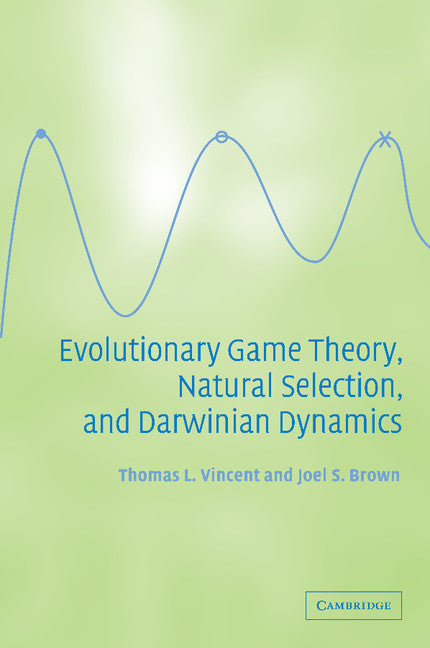Freshly Printed - allow 8 days lead
Couldn't load pickup availability
Evolutionary Game Theory, Natural Selection, and Darwinian Dynamics
First published in 2005, this book investigates many topics in natural selection within the context of Darwinian dynamics and evolutionary game theory.
Thomas L. Vincent (Author), Joel S. Brown (Author)
9781107406513, Cambridge University Press
Paperback / softback, published 16 August 2012
402 pages
22.9 x 15.2 x 2.1 cm, 0.54 kg
Review of the hardback: 'The book is written in an enthusiastic style. In several places you can still perceive the excitement the authors must have felt when they embarked on their work in evolutionary dynamics … a must-read for those interested in the history of evolutionary game theory …' www.PalArch.nl
All of life is a game, and evolution by natural selection is no exception. The evolutionary game theory developed in this 2005 book provides the tools necessary for understanding many of nature's mysteries, including co-evolution, speciation, extinction and the major biological questions regarding fit of form and function, diversity, procession, and the distribution and abundance of life. Mathematics for the evolutionary game are developed based on Darwin's postulates leading to the concept of a fitness generating function (G-function). G-function is a tool that simplifies notation and plays an important role developing Darwinian dynamics that drive natural selection. Natural selection may result in special outcomes such as the evolutionarily stable strategy (ESS). An ESS maximum principle is formulated and its graphical representation as an adaptive landscape illuminates concepts such as adaptation, Fisher's Fundamental Theorem of Natural Selection, and the nature of life's evolutionary game.
1. Understanding natural selection
2. Underlying mathematics and philosophy
3. The Darwinian game
4. G-functions for the Darwinian game
5. Darwinian dynamics
6. Evolutionary stable strategies
7. The ESS maximum principle
8. Speciation and extinction
9. Matrix games
10. Evolutionary ecology
11. Managing evolving systems.


